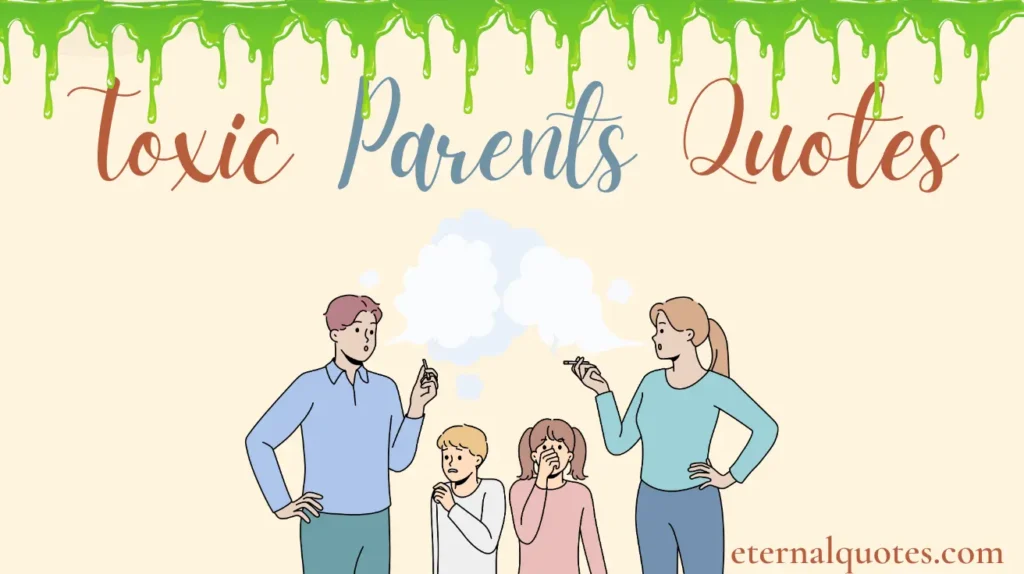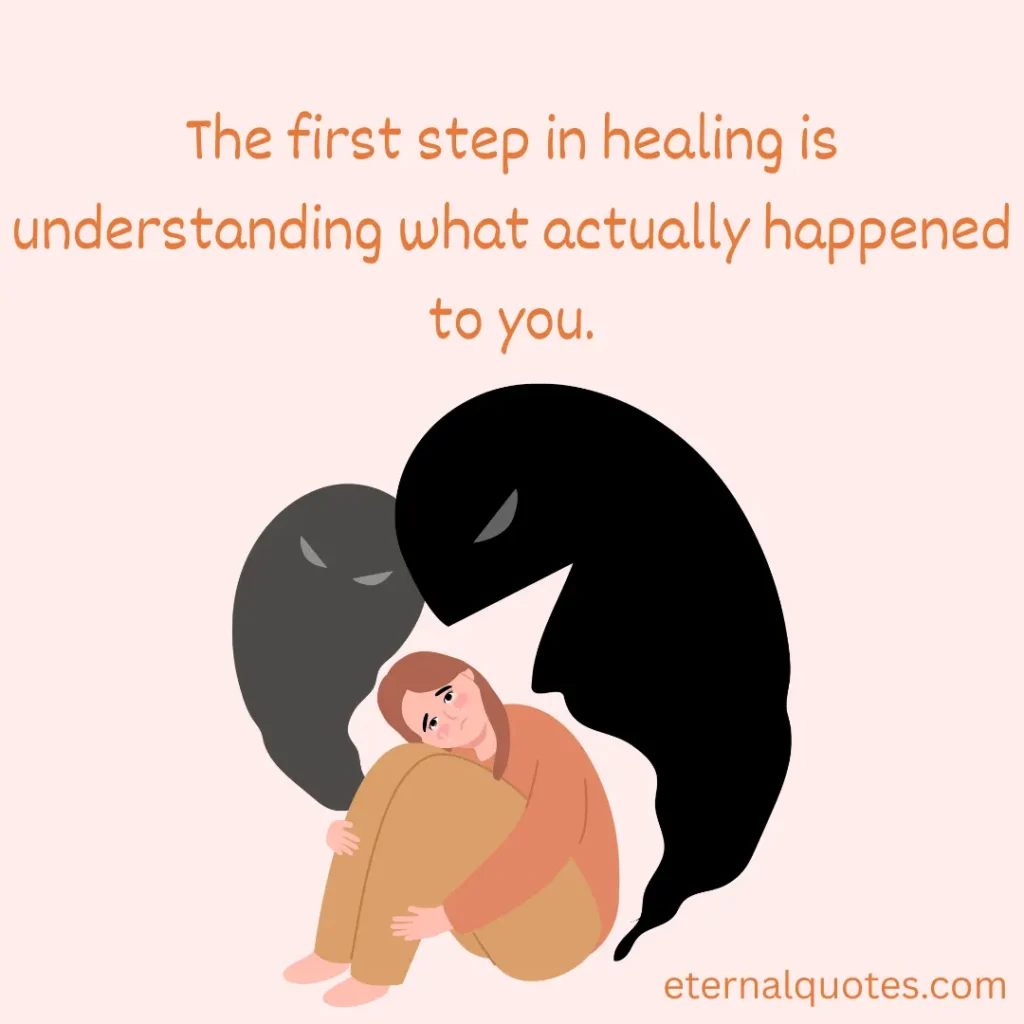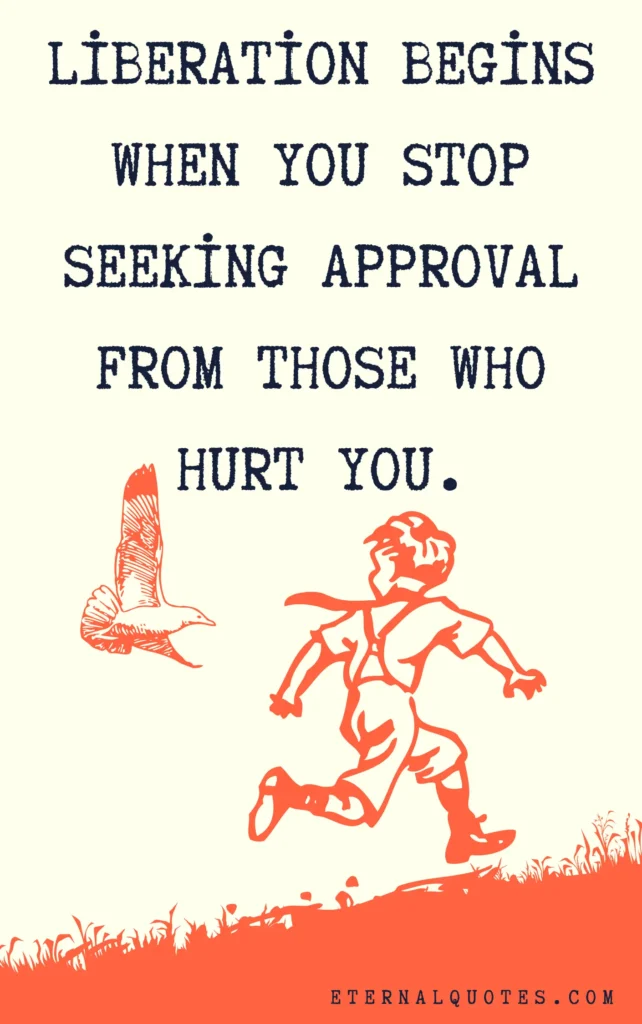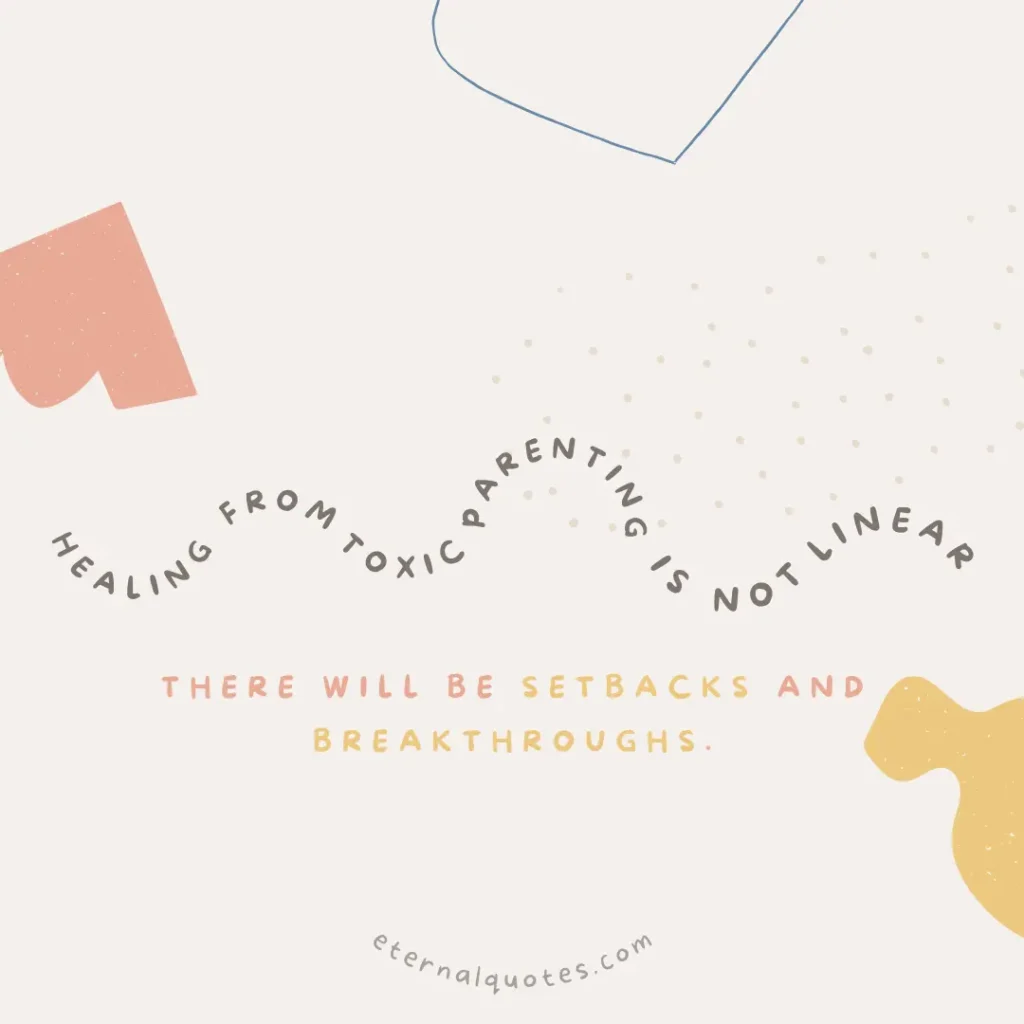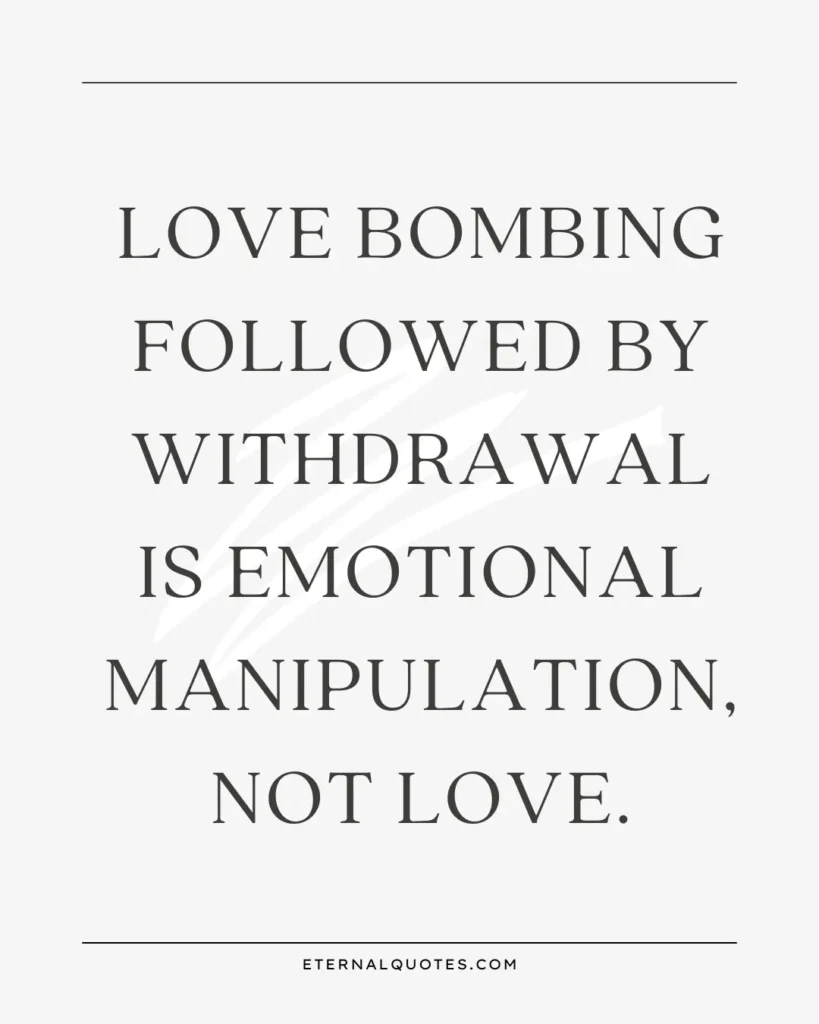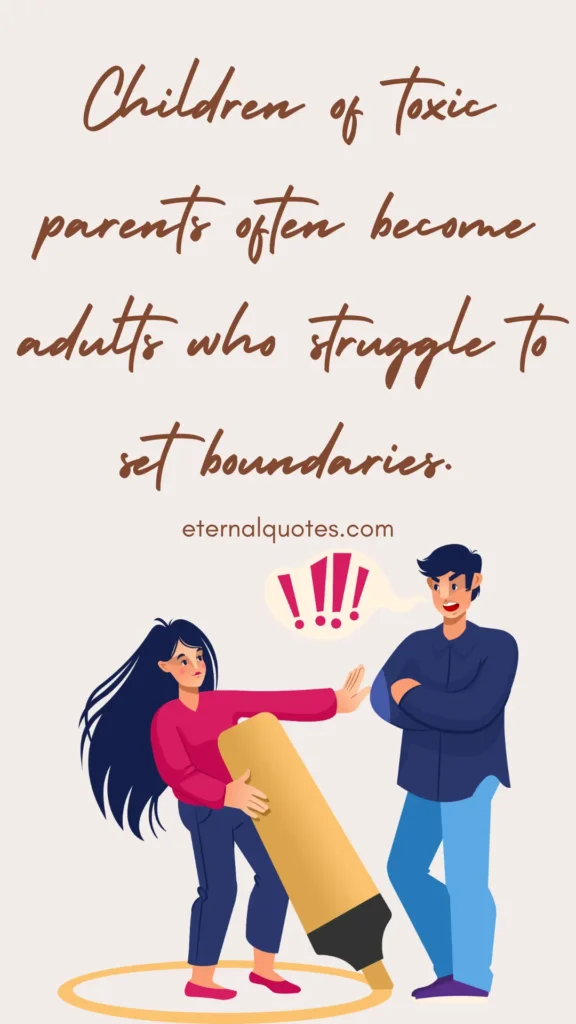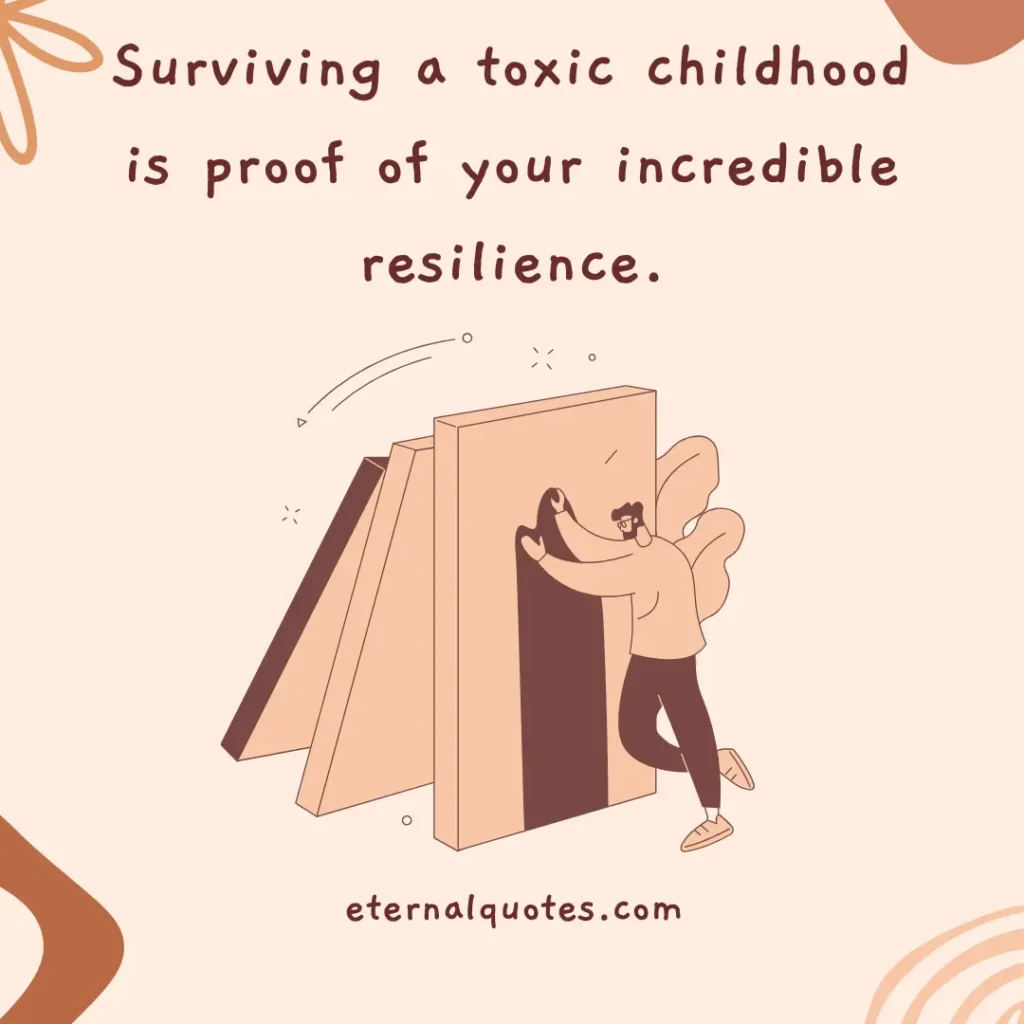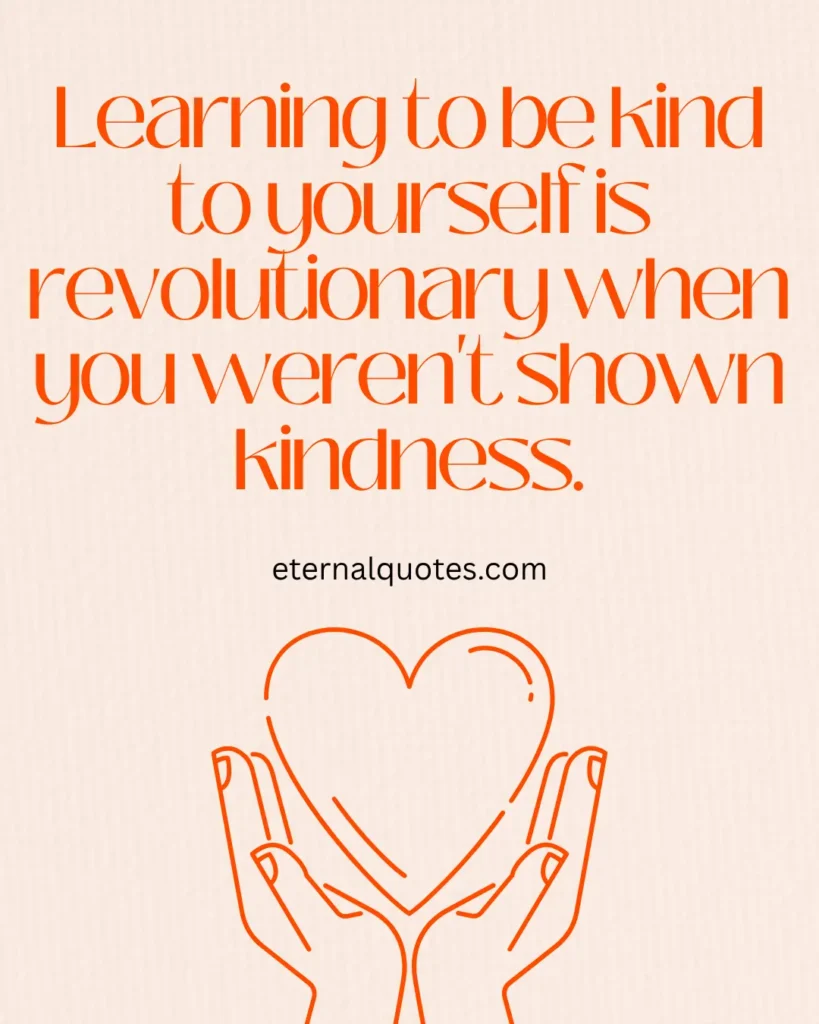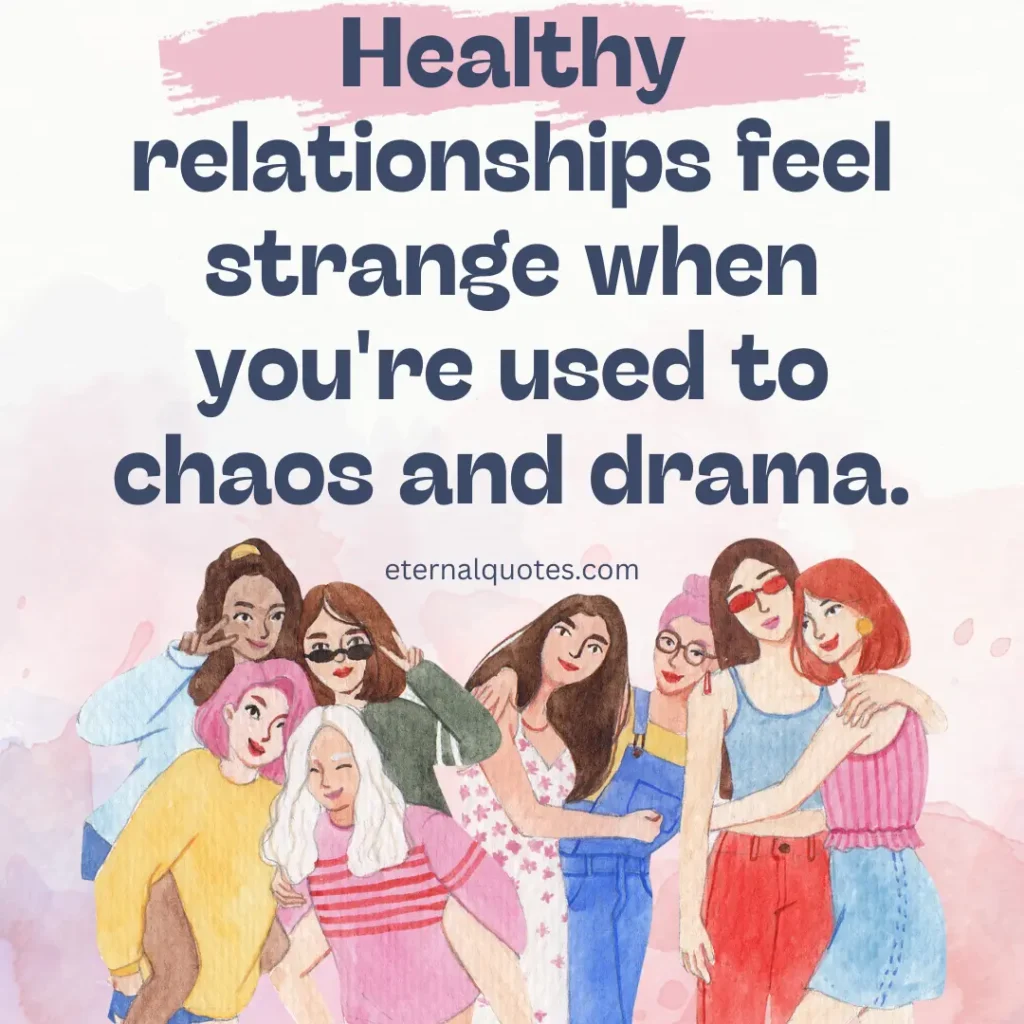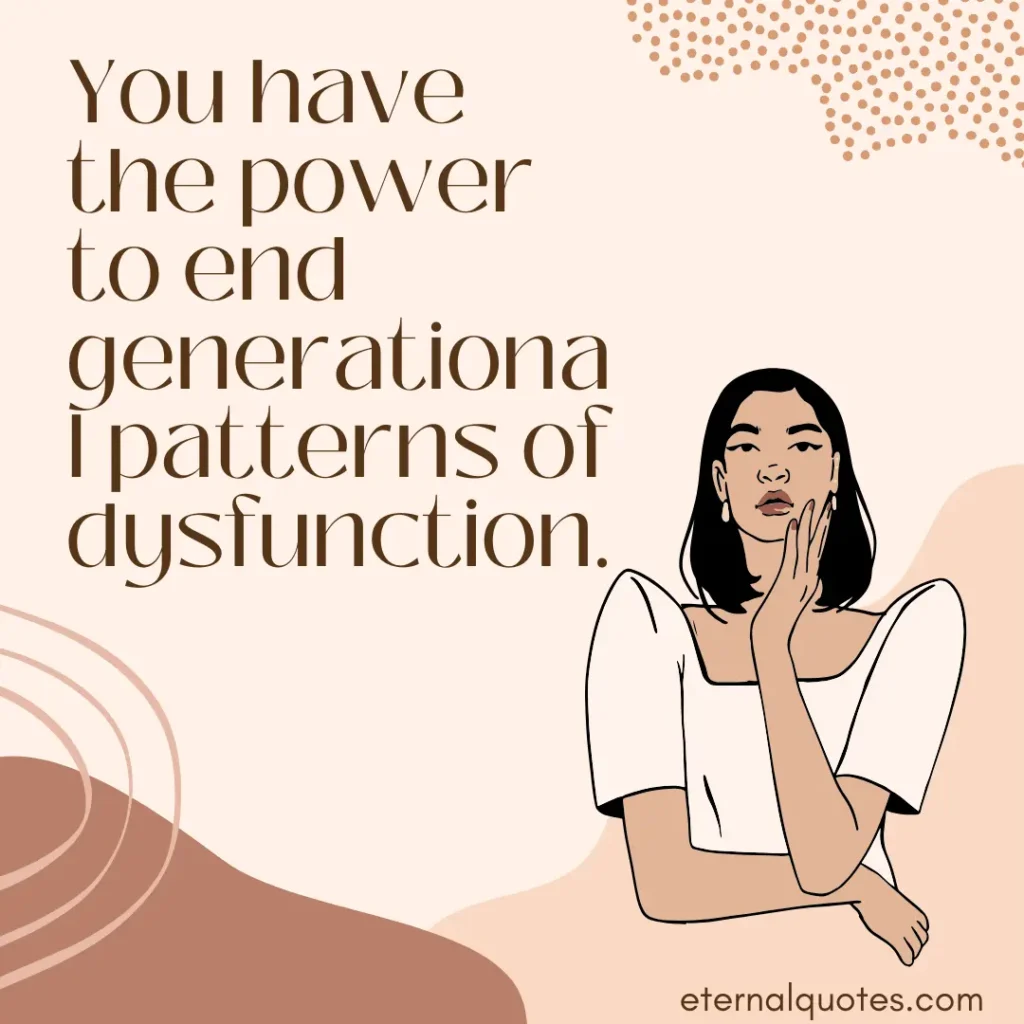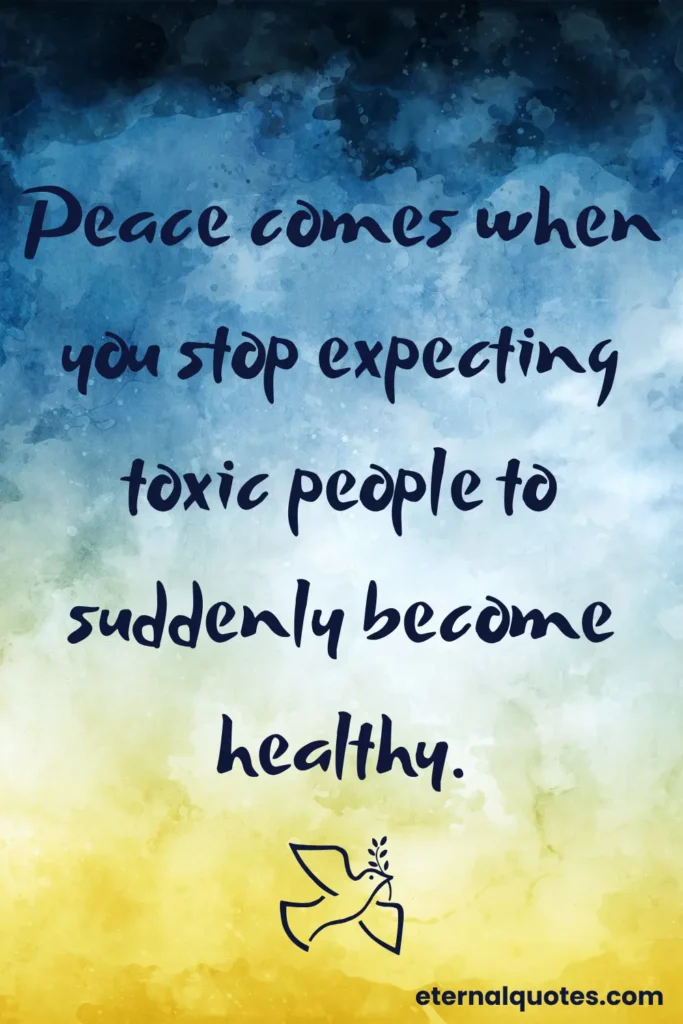Growing up with toxic parents leaves invisible scars that can take years to understand and heal. These wounds often shape how we see ourselves, our relationships, and our worth.
If you’re reading this, you might be on your own journey of recognition and healing. Maybe you’re just starting to name what happened to you, or perhaps you’re years into recovery.
These quotes speak to the complex reality of toxic parenting. They capture the pain, the confusion, the anger, and ultimately, the strength it takes to break free from harmful patterns.
Remember – acknowledging the damage doesn’t make you ungrateful. Setting boundaries doesn’t make you selfish. And choosing healing doesn’t make you weak.
Your story matters. Your pain is valid. And your journey toward healing is brave.
Recognizing the Damage
Your childhood trauma doesn’t become invalid just because your parents had good intentions.
A parent’s love should never come with conditions that require you to shrink yourself.
Being told you’re too sensitive was often just code for don’t react to our mistreatment.
The silent treatment isn’t discipline – it’s emotional abandonment disguised as parenting.
Toxic parents will gaslight you into believing their version of your childhood was the only truth.
When a parent makes their child responsible for their emotions, the roles have been reversed.
Your need for validation as a child wasn’t neediness – it was a basic human requirement.
Good parents don’t keep score of everything they’ve done for their children.
The phrase because I said so teaches obedience, not critical thinking or respect.
A parent who can’t apologize is teaching their child that admitting mistakes is weakness.
Breaking Free from Control
You don’t owe anyone your mental health, not even the people who raised you.
Breaking free from toxic parents means grieving the parents you needed but never had.
Your worth isn’t determined by how well you performed in their impossible standards.
Distance from toxic family isn’t punishment – it’s self-preservation.
You can love someone from afar while protecting yourself from their harmful behavior.
Saying no to family dysfunction doesn’t make you the villain in their story.
The hardest part of healing is accepting that some people will never change.
You’re not responsible for managing other people’s emotions, including your parents.
Setting boundaries with toxic parents often reveals just how controlling they really were.
Your healing journey isn’t about revenge – it’s about reclaiming your life.
The Healing Journey
You’re not broken; you’re someone who survived a difficult beginning.
Therapy isn’t about blaming your parents – it’s about understanding your patterns.
Some days you’ll feel strong, others you’ll feel like that scared child again.
Learning to parent yourself is one of the most important skills you’ll ever develop.
Your inner child deserves the love and protection you never received.
Healing means learning to trust your own perceptions after years of being told they were wrong.
The goal isn’t to forget your past but to stop letting it control your future.
You’re allowed to be angry about what happened to you – anger can be a catalyst for change.
Recovery means learning that love doesn’t have to hurt to be real.
Your trauma responses kept you safe; now you get to choose healthier coping mechanisms.
Emotional Manipulation Tactics
Triangulation – using siblings or others to communicate – is a tool of control.
Guilt trips are emotional weapons disguised as concern.
When parents play victim about their own parenting, they’re avoiding accountability.
Conditional love teaches children that their worth depends on their performance.
Comparison to other children is a form of psychological abuse.
Using your vulnerabilities against you isn’t tough love – it’s betrayal.
Parents who share too much about their problems are using their children as therapists.
The phrase you’re just like your father/mother is often meant to wound, not inform.
Withholding affection as punishment teaches children that love must be earned.
Making everything about them is a sign of narcissistic parenting.
The Cost of Toxic Parenting
Growing up walking on eggshells creates adults who are hyper-vigilant to others’ moods.
When parents don’t regulate their emotions, children learn to regulate them instead.
Toxic parenting creates people pleasers who have lost touch with their own needs.
Children who raise themselves often struggle with self-worth as adults.
Being parentified as a child steals your childhood and burdens your adulthood.
Growing up with inconsistent parents creates adults who struggle with trust.
When parents are emotionally unavailable, children learn to be invisible.
Toxic parents raise children who apologize for existing.
The fear of abandonment often stems from parents who threatened to leave.
Children of toxic parents often become adults who accept less than they deserve.
Strength in Survival
You developed survival skills that most people never needed to learn.
Your ability to read people and situations is a superpower born from necessity.
The fact that you’re questioning your upbringing shows incredible self-awareness.
You’re not a victim – you’re a survivor who’s choosing to thrive.
Your compassion for others often comes from your own experience of pain.
Breaking generational patterns takes immense courage and strength.
You survived 100% of your worst days – that’s an incredible track record.
Your sensitivity isn’t a weakness; it’s what helped you survive an insensitive environment.
The inner strength you developed is something toxic parents could never take away.
You’re living proof that toxic parents don’t have to define your future.
Reparenting Yourself
You get to choose what kind of parent you are to your inner child.
Reparenting means giving yourself the comfort you never received.
Self-compassion isn’t selfish – it’s essential for healing.
You can’t heal what you don’t acknowledge, and you can’t change what you don’t face.
The voice in your head doesn’t have to sound like your critical parent.
Learning to celebrate your wins is part of becoming your own cheerleader.
You deserve the same patience you would give to a friend going through hard times.
Reparenting means teaching yourself that mistakes are human, not catastrophic.
Your needs matter, and meeting them isn’t selfish or demanding.
You’re allowed to put yourself first – it’s not selfish, it’s necessary.
Building Healthy Relationships
You might mistake intensity for intimacy because that’s what felt familiar.
Learning to receive love without strings attached is a skill toxic parents never taught.
Healthy people don’t punish you for having boundaries.
You deserve relationships where you don’t have to perform to be loved.
Trust is built slowly with consistent actions, not grand gestures.
In healthy relationships, conflict leads to resolution, not punishment.
You don’t have to earn love by being perfect or useful.
Healthy people celebrate your success instead of competing with you.
You’re allowed to expect respect and kindness in your relationships.
Real love doesn’t require you to sacrifice your mental health.
Breaking the Cycle
Awareness is the first step in choosing differently for your own children.
Breaking cycles means feeling the pain so your children don’t have to.
You can be the ancestor your descendants will thank.
Choosing healing over repeating patterns is an act of love for future generations.
Your children deserve better than what you received, and you deserve to give it.
The cycle breaks with you when you refuse to pass on what was passed to you.
Healing your own childhood wounds prevents them from becoming your children’s inheritance.
You don’t have to be perfect to be better than what you experienced.
Teaching your children emotional intelligence is revolutionary when you weren’t taught it.
Every time you choose love over fear, you’re breaking the cycle.
Finding Peace and Moving Forward
You can forgive for your own peace while still maintaining necessary boundaries.
Moving forward doesn’t mean forgetting – it means not letting the past control your present.
Your story includes pain, but it doesn’t end there.
Healing is possible, hope is real, and you are worthy of both.
The family you choose can be more loving than the one you were born into.
Your past doesn’t define you, but how you heal from it does.
You’re not responsible for fixing anyone else’s brokenness.
The best revenge against toxic parents is living a healthy, happy life.
Your journey of healing is a gift to yourself and everyone who loves you.
You are not doomed to repeat what you experienced – you have the power to choose differently.
Final Thoughts
Healing from toxic parenting is one of the most challenging yet rewarding journeys you’ll ever take. It requires courage to face painful truths, strength to set difficult boundaries, and patience to unlearn patterns that once kept you safe.
Remember that healing isn’t about becoming perfect. It’s about becoming whole. It’s about learning to love yourself the way you needed to be loved as a child.
Your story of survival is powerful. Your journey of healing is inspiring. And your choice to break the cycle is heroic.
You are not defined by what happened to you. You are defined by how you choose to heal, grow, and love despite it all.
Take it one day at a time. Be patient with yourself. And remember – you deserve all the love, peace, and joy that healthy relationships can bring.
You are worthy. You are enough. And you are so much stronger than you know.

